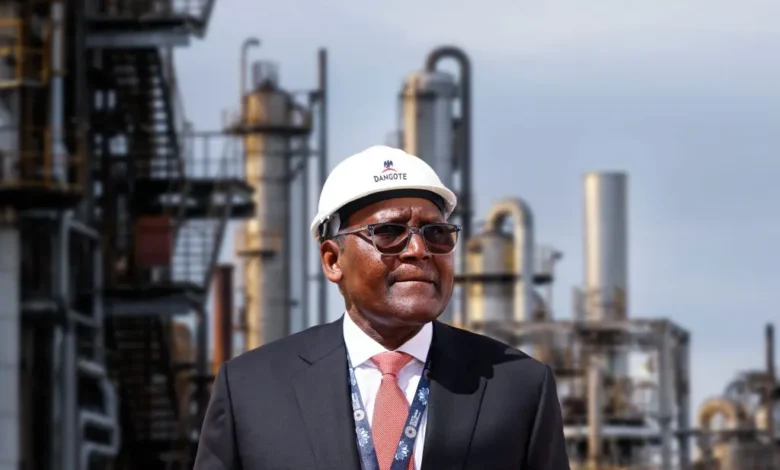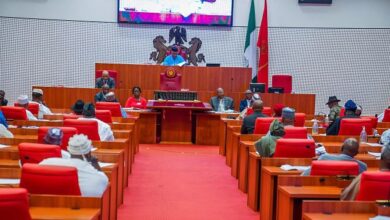
A high-stakes legal confrontation has erupted in Nigeria’s petroleum sector as three major oil marketers – AYM Shafa, A.A. Rano, and Matrix Petroleum – mount a strong legal challenge against Dangote Petroleum Refinery’s attempt to restrict fuel imports. The case, filed at the Federal High Court in Abuja, represents a turning point for Nigeria’s energy market competition.
In their counter-affidavit to case FHC/ABJ/CS/1324/2024, the oil marketers argue that Dangote’s move to monopolize the sector would severely damage Nigeria’s petroleum industry. This response comes after Dangote Refinery sued the Nigeria Midstream and Downstream Petroleum Regulatory Authority (NMDPRA) and several oil marketers over import license issuance.
Competition Heats Up
The oil marketers’ defense centers on protecting market competition. They assert that Dangote’s refinery currently lacks the capacity to meet Nigeria’s daily petroleum consumption needs. Their argument emphasizes the risks of concentrating the nation’s fuel supply in a single entity’s hands, warning against the dangers of monopolistic control over pricing and distribution.
Supply Patterns Change
While the legal battle unfolds, Dangote Refinery’s export operations tell another story. Three international trading giants – Vitol Group, Trafigura Group, and BP Plc – dominate the refinery’s output, accounting for 75% of total fuel purchases. Between February and October, the facility exported nearly 6 million tons of fuel, equivalent to 45 million barrels.
The refinery’s current export patterns demonstrate its growing influence in African and European petroleum trading. With daily loading rates reaching 35,000 tonnes in October, the facility has already begun reshaping regional oil trade flows and reducing Nigeria’s crude oil surplus.
Consumer Protection Arguments
The oil marketers strongly emphasize consumer protection in their legal defense. They argue that limiting imports would leave Nigerians vulnerable to potential supply disruptions and price volatility. Their counter-affidavit specifically warns about the absence of a 30-day strategic reserve, which could leave the country exposed during any production interruptions.
Market Security Concerns
Security of supply emerges as a major concern in the legal dispute. The marketers argue that relying solely on Dangote Refinery creates significant risks for Nigeria’s energy security. They are of the position that any technical issues or production chain disruptions could trigger a national energy crisis without alternative supply sources.
Legal Timeline
Justice Inyang Ekwo has set January 20, 2025, for a report of settlement or service, marking a critical deadline for this sector-defining case. The outcome could fundamentally reshape Nigeria’s petroleum product supply chain and market structure.
The resolution of this legal battle will likely determine the future of Nigeria’s downstream petroleum sector. At stake is not just market competition but the delicate balance between promoting local refining capacity and maintaining energy security through diverse supply sources.





One Comment